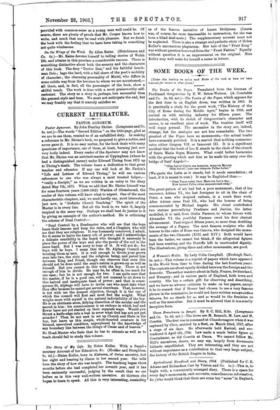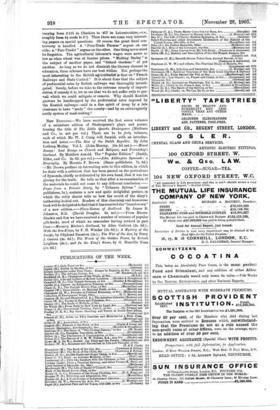Agricultural Handbook and Diary, 1904. (Published for C. R. Adeane
and Richardson Carr by Vinton and Co. ls.)—This is, to begin with, a conveniently arranged diary. There is a space for every day's memoranda, cash accounts, miscellaneous information, &c. (who would think that there are some ten "acres" in England, varying from 2.115 in Cheshire to .477 in Leicestershire,—i.e., roughly from 84- roods to 2?) Then there .are some very interest- ing papers on special questions. Of course the greet fiscal con- troversy is handled. A "Free-Trade Farmer" argues on one side ; a "Fair-Trader" argues on the other. One thing never must be forgotten. The agricultural labourer's wages were never so low as when wheat was at famine prices.' Malting Barley" is the subject of another paper, and "Sehool Gardens" of yet another. As long as we do not diminish the literary element in education, these schemes have our best wishes. But perhaps the most interesting to the British striculttuqsb is that on "French Railways and State ControL" It is about time that the subject of preferential rates by British railways was thoroughly investi- gated. Surely, before we take to the extreme remedy of import- -duties, if remedy it is, let us see that we do not suffer evils to pre- -veil which we could mitigate or remove. Why should Kentish growers be handicapped by the preferential rates imposed by the Kentish railways—said in a fine spirit of irony by a late chairman to have "made" the county—and by an extravagantly costly system of road-making ?



















































 Previous page
Previous page